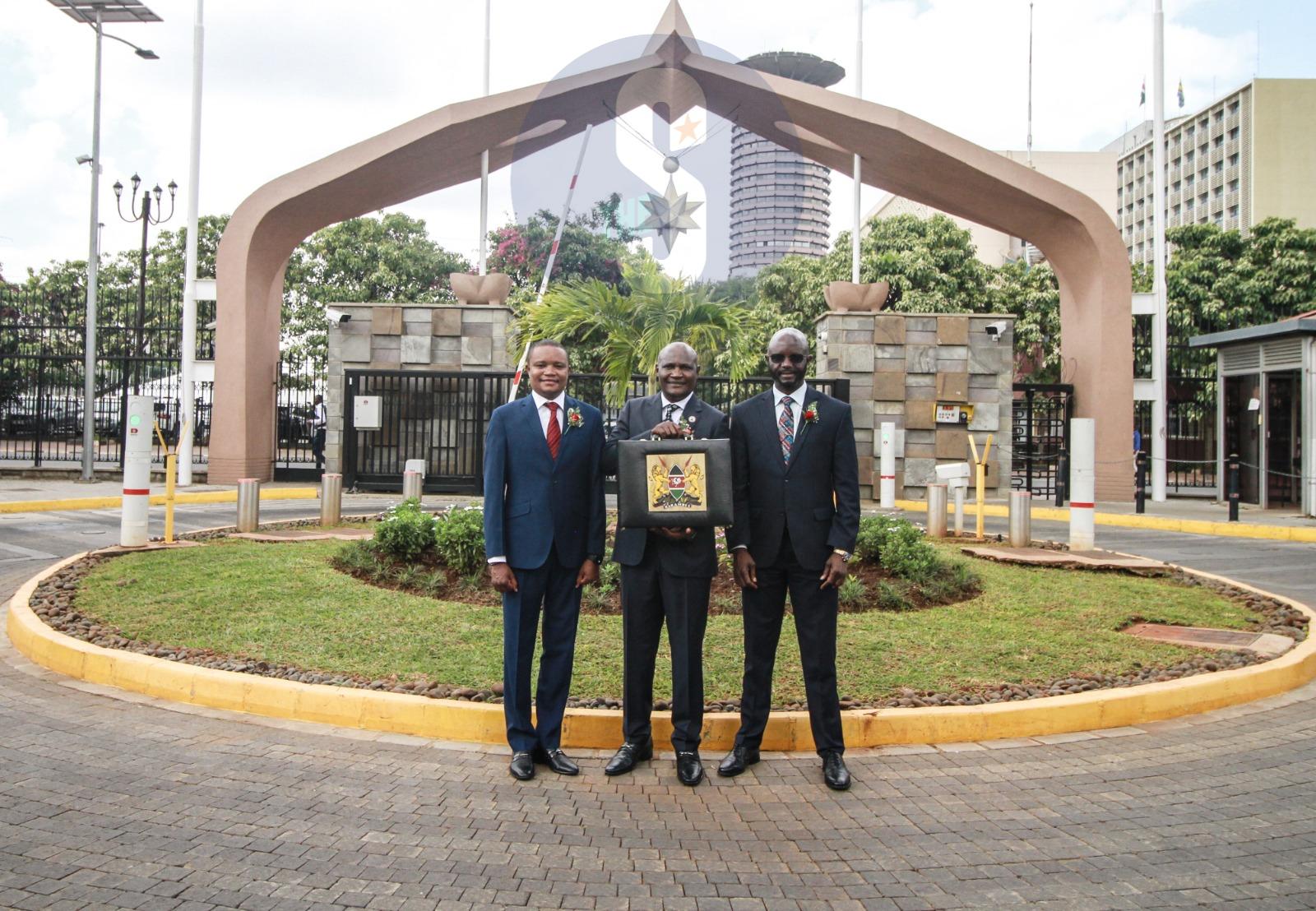
 Treasury CS John Mbadi with National Assembly Budget Committee members Kimani Kuri(left) and Samuel Atandi (right) at the National Assembly on June 12, 2025./PHOTOS: ENOS TECHE
Treasury CS John Mbadi with National Assembly Budget Committee members Kimani Kuri(left) and Samuel Atandi (right) at the National Assembly on June 12, 2025./PHOTOS: ENOS TECHE
Kenya’s health sector has received a major funding boost in the 2025/26 financial year, with Treasury Cabinet Secretary John Mbadi allocating Sh138.1 billion to support the Affordable Healthcare agenda.
This marks an increase of Sh11.1 billion from the Sh127 billion allocated in the previous financial year and reverses a three-year trend of budget cuts to the sector.
Presenting the budget estimates to Parliament on Thursday, June 12, 2025, CS Mbadi described the allocation as a signal of the government’s renewed commitment to improving access and quality of healthcare for all Kenyans.
However, despite the overall increase, some critical programmes have seen significant funding reductions.
The allocation for Universal Health Coverage (UHC), one of the government’s flagship health initiatives, has been slashed from Sh42 billion in 2024/25 to just Sh6.2 billion.
Similarly, the budget for medical cover for orphans, the elderly, and severely disabled persons has been cut from Sh861.5 million to KSh430 million.
Primary healthcare received a notable boost, rising from Sh7.1 billion to Sh13.1 billion. Mbadi said this increase is intended to strengthen health services at the community level and reduce pressure on referral hospitals.
In the fight against HIV/AIDS, malaria, and tuberculosis, the Treasury has proposed Sh17.3 billion for the Global Fund and Sh4.6 billion for vaccines and immunization programmes.
The budget also includes Sh8 billion for the Emergency, Chronic and Critical Illness Fund managed by the Social Health Authority—an increase from Sh3 billion last year.
Cancer care has received special attention, with Sh1 billion allocated for the construction of a cancer center at Kisii Level IV Hospital. An additional Sh100 million each will go to enhancing cancer treatment at Kenyatta National Hospital and Kenyatta University Teaching, Referral and Research Hospital.
Referral hospitals will receive a combined Sh42.4 billion, covering major facilities including Kenyatta National Hospital, Moi Teaching and Referral Hospital, Jaramogi Oginga Odinga Hospital, Mwai Kibaki Hospital in Othaya, and Mathare National Hospital.
The budget also includes Sh1.3 billion for constructing pediatric and burns centers at KNH.
To support the medical supply chain and research, KEMSA has been allocated Sh5.2 billion, while KEMRI will receive Sh2.7 billion. Family planning and reproductive health commodities will get Sh500 million, and the national blood transfusion services will receive KSh300 million for equipment procurement.
Mbadi also proposed funding to strengthen the health workforce. Sh4.3 billion has been set aside for medical interns, Sh3.2 billion for community health promoters, Sh303 million for training health personnel, and Sh8.9 billion for Kenya Medical Training Colleges.
As Parliament begins debate on the budget, attention will likely focus on the sharp reductions to UHC and vulnerable group coverage.
While the overall health budget has grown, critics warn that cuts to key programs may undermine progress toward universal and equitable healthcare access.

















